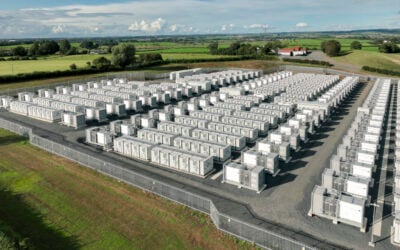The UK’s Capacity Market has been initially suspended after the European Court of Justice annulled the European Commission’s decision not to object to the scheme.
However, the Department for Business, Energy and Industrial Strategy has said it intends to work closely with the European Commission to reinstate the scheme as soon as possible.
The ruling essentially prevents the government from holding future auctions and making payments under existing agreements.
Clean energy technology provider Tempus Energy challenged the decision to grant the UK’s Capacity Market with state aid approval, claiming that its very design unfairly discriminated against clean energy projects, paving the way for the market to be “dominated” by coal, gas and diesel generators.
Try Premium for just $1
- Full premium access for the first month at only $1
- Converts to an annual rate after 30 days unless cancelled
- Cancel anytime during the trial period
Premium Benefits
- Expert industry analysis and interviews
- Digital access to PV Tech Power journal
- Exclusive event discounts
Or get the full Premium subscription right away
Or continue reading this article for free
Tempus claimed that the scheme privileges generation technologies over demand-side response in a “discriminatory and disproportionate manner”, adding that the European Commission could not have concluded that there were no doubts surrounding the scheme on the basis of a preliminary examination.
And today the General Court of the European Union ruled in Tempus’ favour, annulling the European Commission’s decision not to raise objections to the scheme.
The ruling said that the EC should have had doubts over certain aspects of the scheme and initiated a formal investigation to properly assess its compatibility with state aid rules.
The UK now has two months to appeal the ruling before the Court of Justice.
In a statement issued this morning, Tempus Energy chief Sara Bell said that the ruling meant that a “customer revolution is on the cards”.
“This ruling opens the door for cheaper energy – greater use of demand-side innovation would change the way we use electricity in practice, and place customers at the heart of the energy system for the first time.
“This ruling should ultimately force the UK government to design an energy system that reduces bills by incentivising and empowering customers to use electricity in the most cost-effective way – while maximising the use of climate-friendly renewables,” she said.
A BEIS spokesperson said: “We are disappointed with this judgement, but it poses no issues for our security of supply. As a responsible government, we have prepared for all outcomes, and we will be working closely with the Commission so that the Capacity Market can be reinstated as soon as possible.”
More to follow





